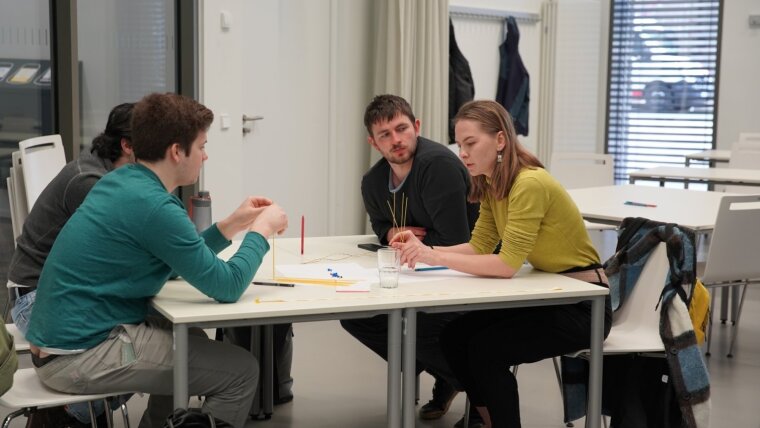Study Program
Our master's degree students obtain hands-on experience while taking methodology courses in state-of-the-art photonics laboratories.

The two-year Master's degree program comprises four educational stages and is complemented by German and English language courses as well as ASP training courses:
Key elements of the study program of the M.Sc. Photonics course.
Illustration: Christian Helgert